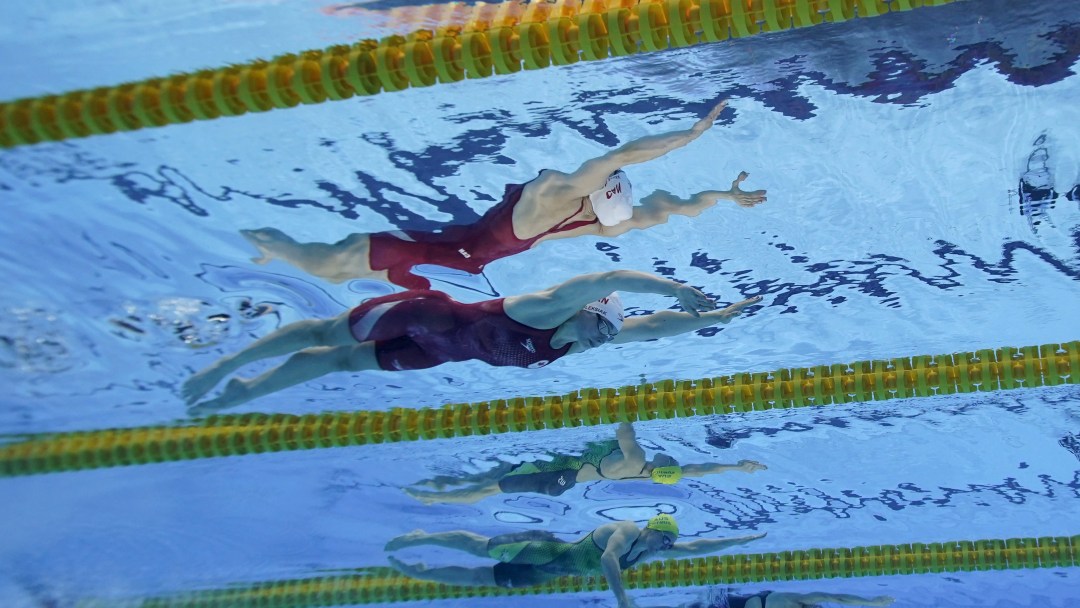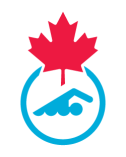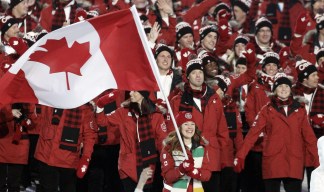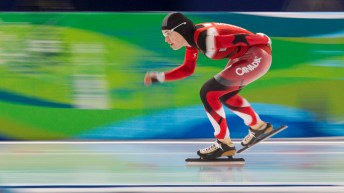Swimming
Team Canada Medal Count
Sport Overview
Swimming at Paris 2024
Venue: Paris La Défense Arena (pool events), Pont Alexandre III (open water events)
Competition Dates: Pool Events — July 27-August 4 (Days 1-9), Open Water Events — August 8-9 (Days 13-14)
Events: 37 (18 men, 18 women, 1 mixed)
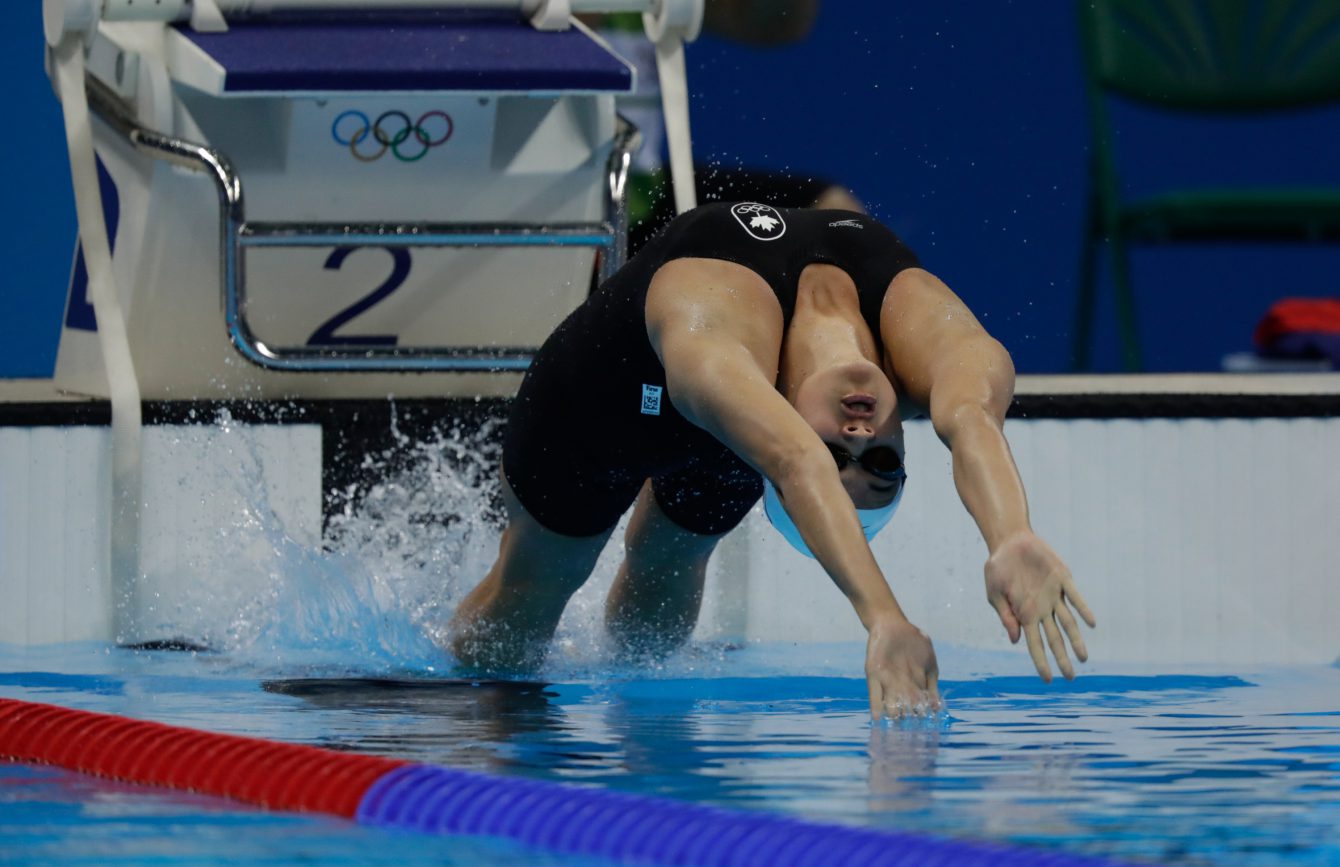
Swimming’s 37 medal events, second only to athletics, include both pool and open water (also called marathon swimming) events. The 35 pool events include both individual and relay events. The two open water events are for individuals only.
There are four swimming styles: freestyle, backstroke, breaststroke, and butterfly. There are also medley events that incorporate all four strokes, with one stroke per each leg of equal distance. In freestyle events, competitors are permitted to use any stroke, although the crawl is generally used because it is the fastest.
In the pool, there are men’s and women’s 100m and 200m events for each stroke. Freestyle has additional men’s and women’s events over distances of 50m, 400m, 800m, and 1500m. The individual medley events are 200m and 400m for men and women. There are also 4x100m and 4x200m freestyle relay events as well as a 4x100m medley relay for each gender. Starting at Tokyo 2020, a mixed 4x100m medley relay featured teams of two men and two women. The men’s and women’s open water events are 10km marathons.
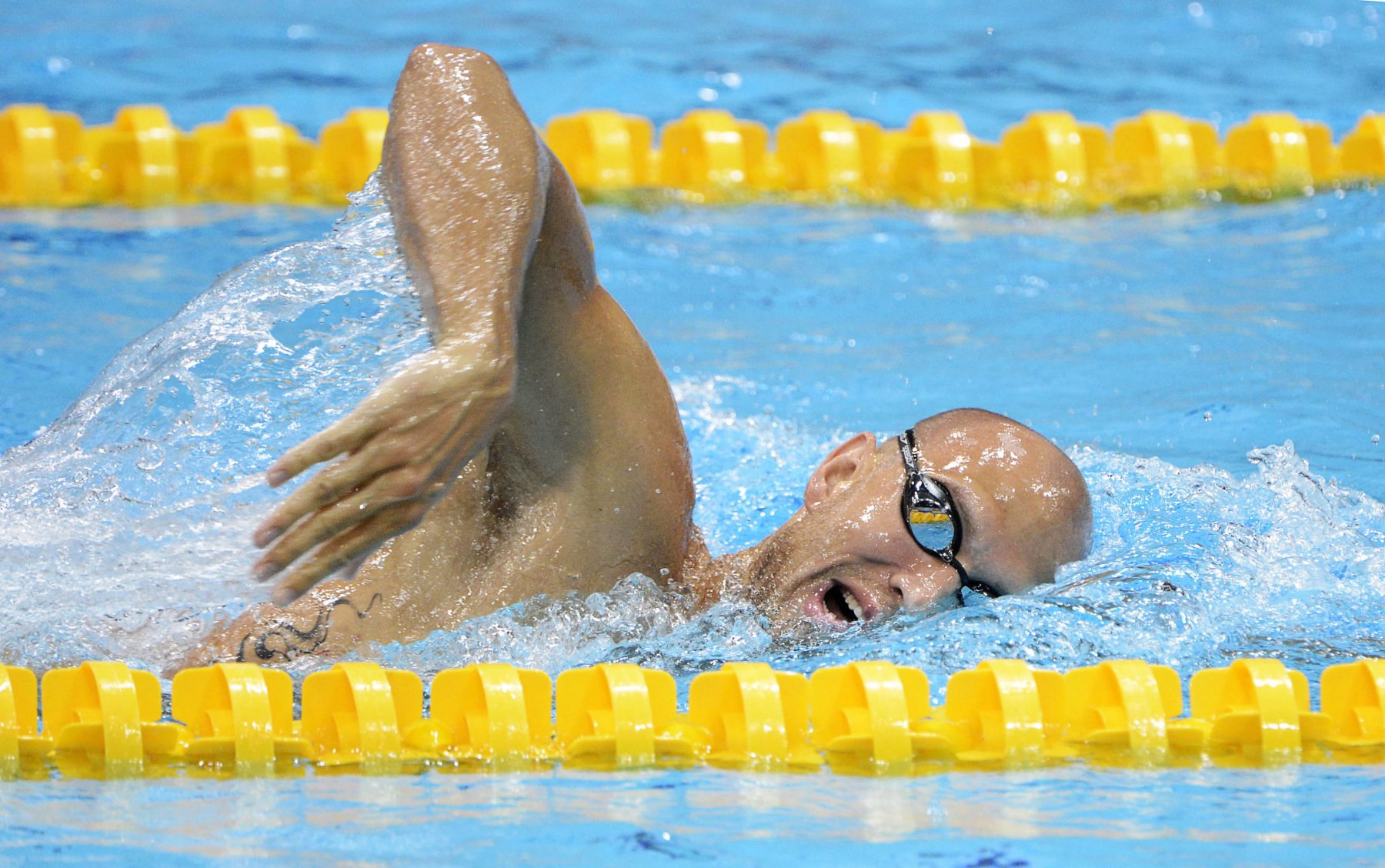
All pool events begin with preliminary heats. In 50m, 100m, and 200m events, the 16 fastest swimmers advance to the semifinals, from which the eight fastest swimmers advance to the final. In events of 400m and longer there are no semifinals, so the eight fastest swimmers (or relay teams) advance directly to the final. Swimmers are seeded according to their qualifying times so that the fastest swimmers are in the centre lanes of the pool.
Open water swimmers are allowed to use any stroke. Races begin with a mass start from a dock or pontoon and swimmers will make multiple laps of a course delineated by buoys. Swimmers can receive hydration from coaches on a feeding station pontoon during the approximately two-hour race. There is much physical contact, particularly at the start and around the turn buoys, as swimmers seek and try to maintain good race position. After swimming in packs to draft off one another, the leaders will thin out as the last lap becomes a sprint to the finish, where they must hit one of six touch pads above the water.
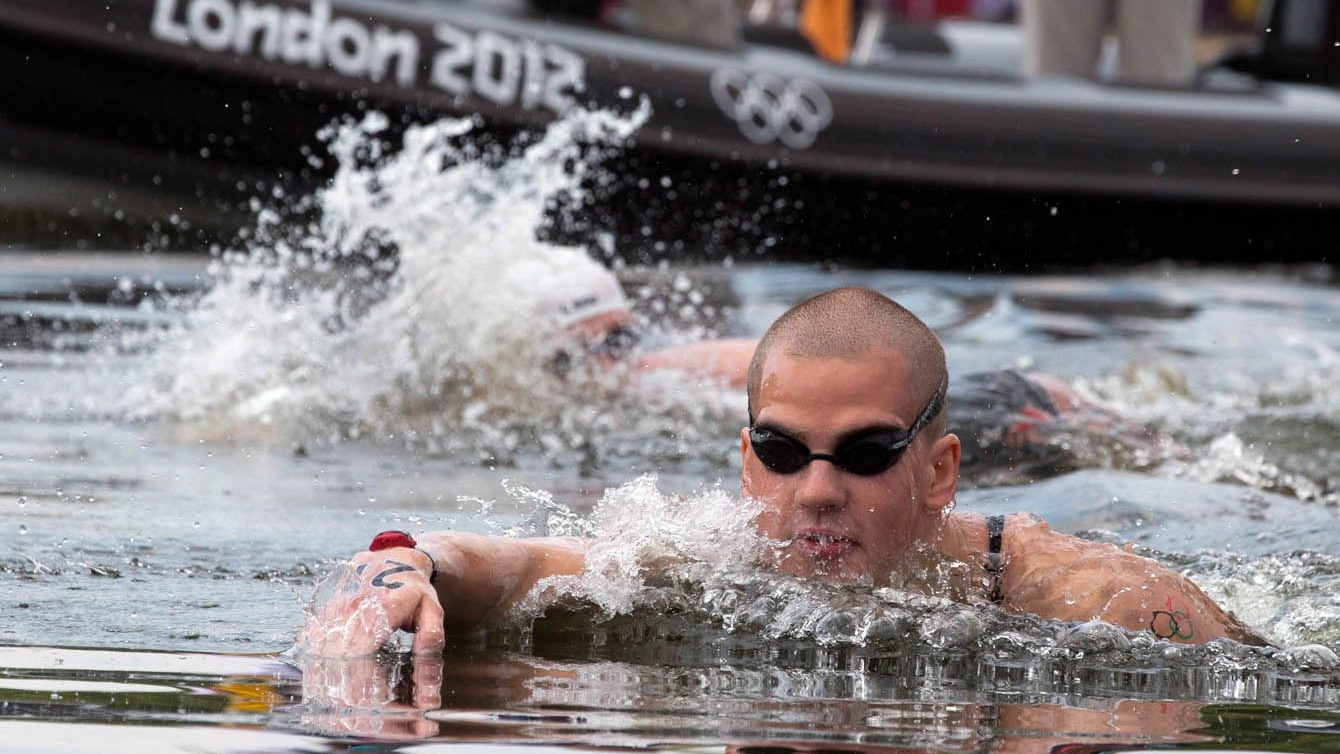
Canada’s Olympic History (Pre-LA 2028)
Canada has an impressive 63 Olympic medals in swimming, second-most among summer sports.
At Paris 2024 Canada won eight Olympic medals in swimming, tying the nation’s second-best medal haul for the sport from Montreal 1976. Canada won 10 medals at the Soviet Bloc-boycotted Los Angeles 1984. At both Rio 2016 and Tokyo 2020, Canada won six medals in swimming – all earned by women.
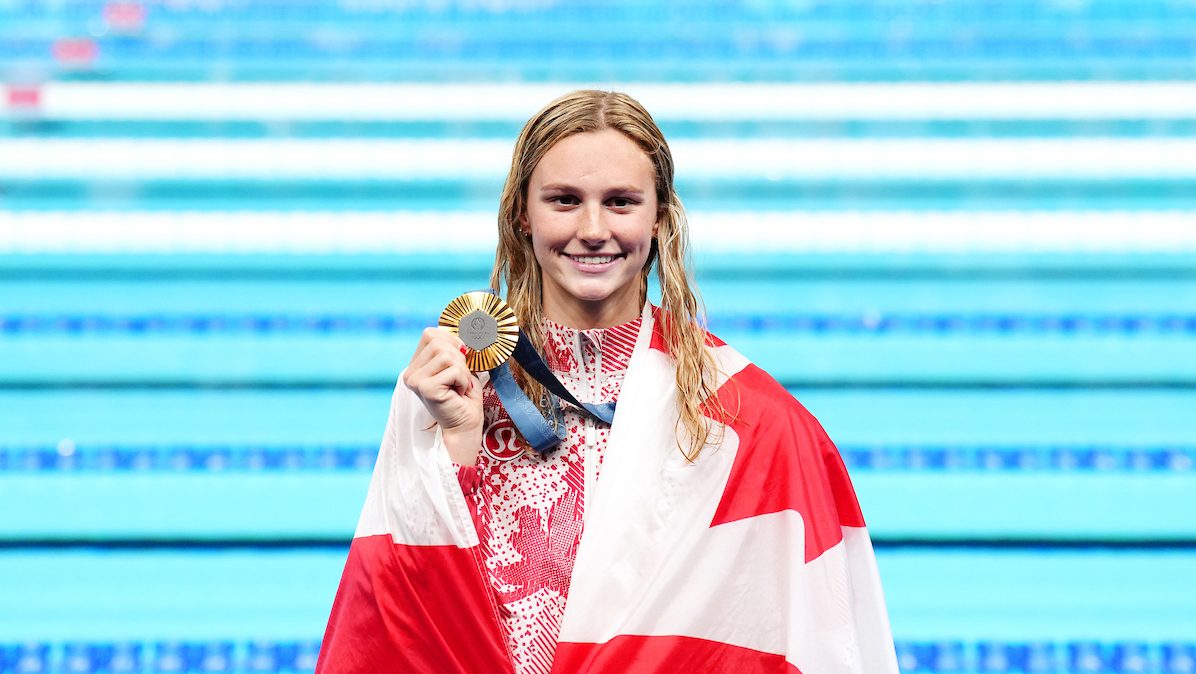
Paris 2024 saw Summer McIntosh win four medals, matching Penny Oleksiak as Canada’s most decorated athlete at one summer Games. At only 17-years-old, McIntosh won three gold medals and one silver medal. McIntosh is the first Canadian ever to win three gold medals at a single Olympic Games.
At Paris 2024, Kylie Masse secured an individual medal for the third straight Olympic Games, a first for a Canadian swimmer, taking bronze in the 200m backstroke. Paris also saw a resurgence in the performance by Canadian men, with Ilya Kharun winning bronze in the 200m butterfly, and then sharing the podium with teammate Josh Liendo as they took bronze and silver, respectively, in the 100m butterfly. This result marked Canada’s first double podium (in any sport) at an Olympic Summer Games since Montreal 1976. With his silver medal, Liendo also became the first Black Canadian to win an Olympic swimming medal.
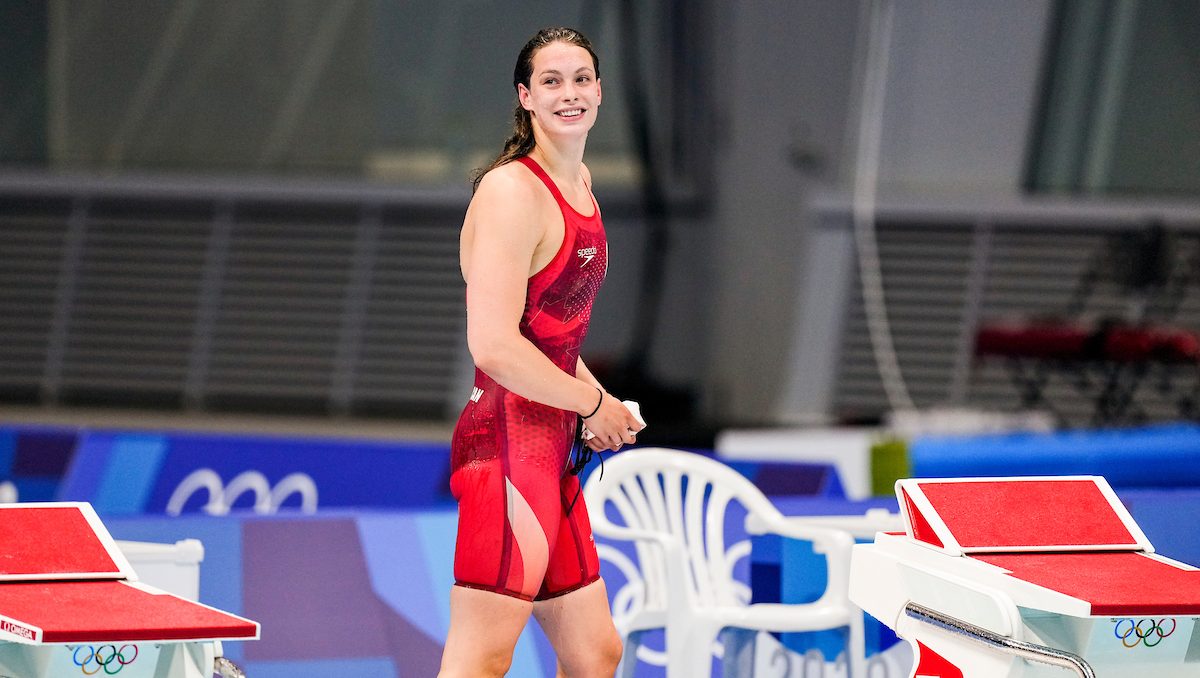
With seven career medals, Penny Oleksiak is tied with sprinter Andre DeGrasse as Canada’s most decorated Olympian. By winning gold in the 100m freestyle at Rio 2016 at just 16 years and 59 days, Oleksiak became Canada’s youngest ever Olympic champion.
Also in Rio, Oleksiak anchored both the women’s 4x100m and 4x200m freestyle relays to bronze and claimed silver in the 100m butterfly. With relay teammate Taylor Ruck, they became the first ever Olympic medallists born in the 21st century. Kylie Masse and Hilary Caldwell added bronze medals in the 100m and 200m backstroke events, respectively.
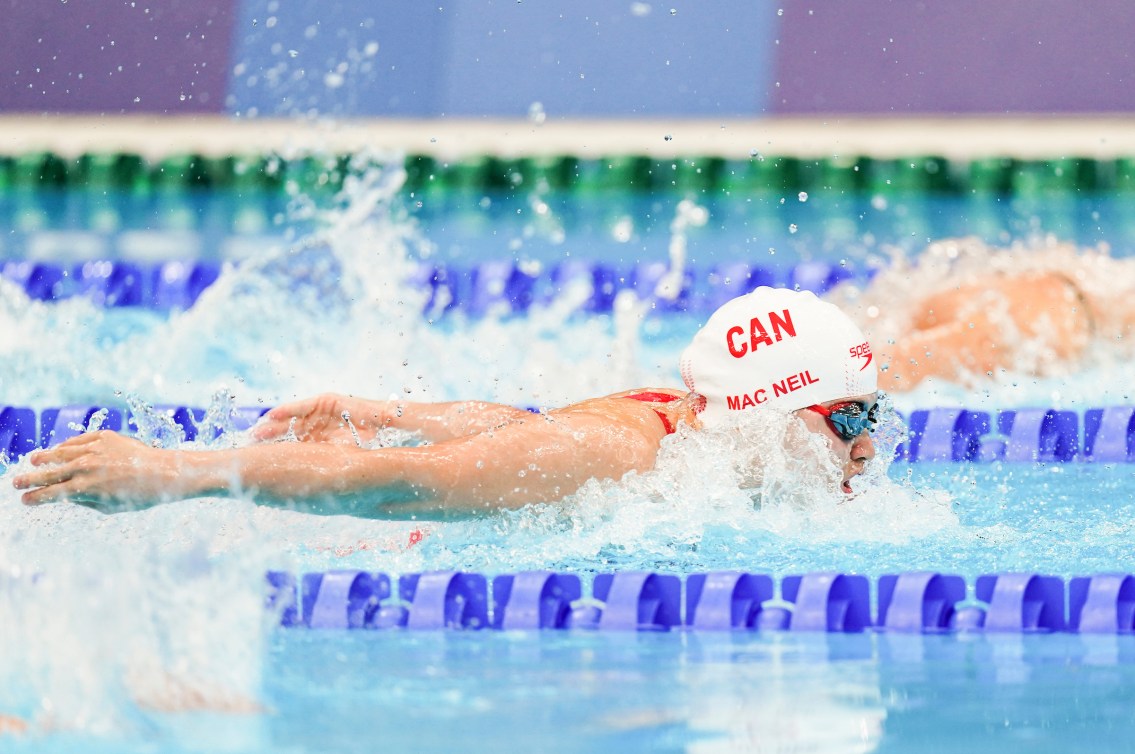
At Tokyo 2020, Oleksiak stood on three more podiums. She won bronze in the 200m freestyle and was the anchor of the 4x100m freestyle relay that won silver and the women’s 4x100m medley relay that won bronze. Masse and Maggie Mac Neil were also triple medallists. In addition to being part of both medal-winning relays, Mac Neil won Canada’s first gold of the Games in the 100m butterfly. Masse swam to silver in both the 100m and 200m backstroke events before joining the medley relay.
George Hodgson won Canada’s first two medals in swimming, gold in the 400m and 1500m freestyle events at Stockholm 1912. While Canada continued to do well in swimming, another gold medal wouldn’t be won until Los Angeles 1984. Alex Baumann won both the 200m and 400m individual medley events by setting a pair of world records while Victor Davis and Anne Ottenbrite swept the 200m breaststroke events. Canada’s last Olympic swimming champion prior to Oleksiak was Mark Tewksbury, who won the 100m backstroke at Barcelona 1992.
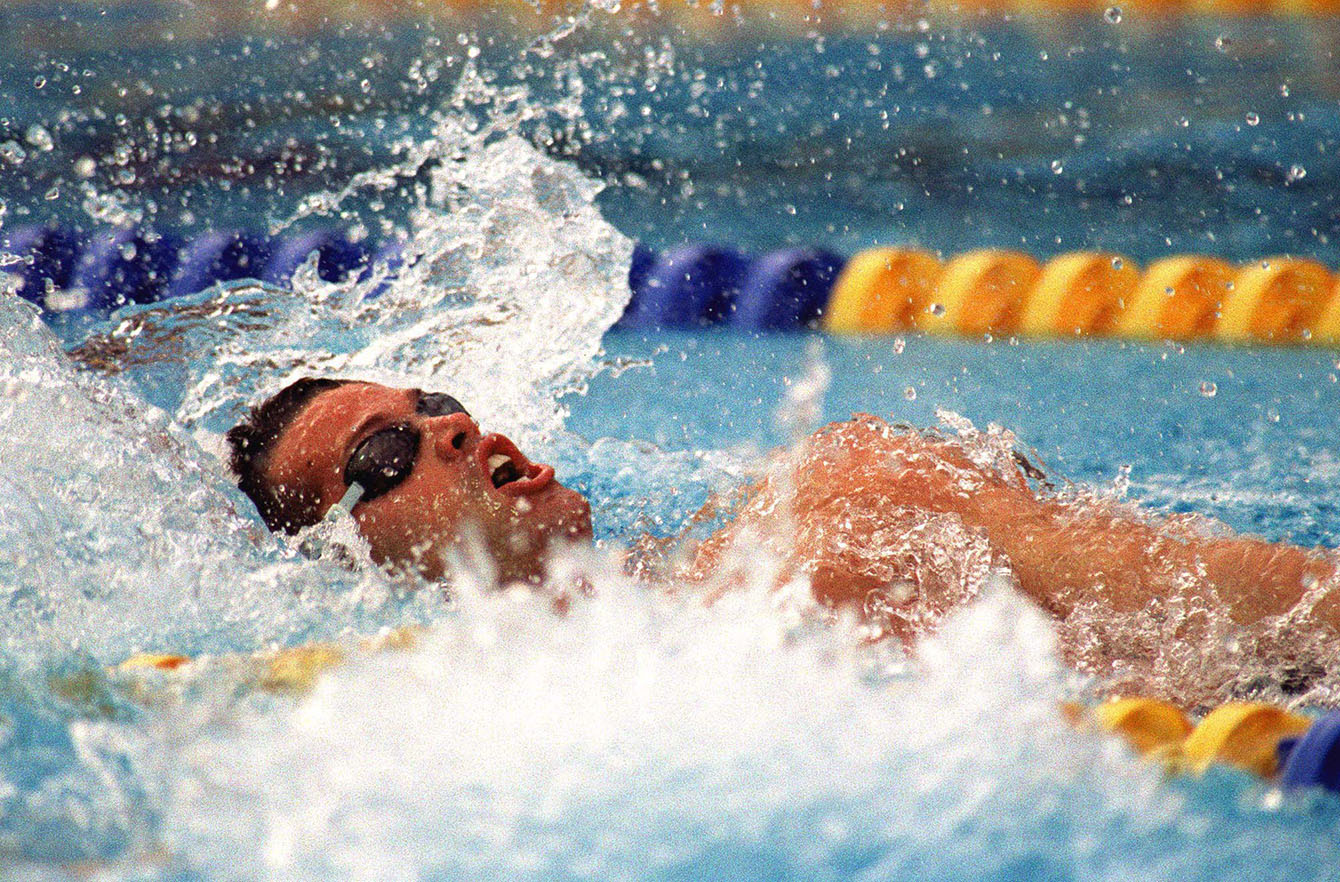
Davis’s record-setting four career medals were won at Los Angeles 1984 and Seoul 1988. Tom Ponting, a butterfly specialist and medley relay stalwart, was the first Canadian swimmer to win medals in three different Olympic Games (Los Angeles 1984, Seoul 1988, Barcelona 1992).
After women began competing in swimming at Stockholm 1912, Elaine Tanner became Canada’s first female swimming medallist at Mexico City 1968, winning silvers in the 100m and 200m backstroke and bronze in the 4x100m freestyle relay.
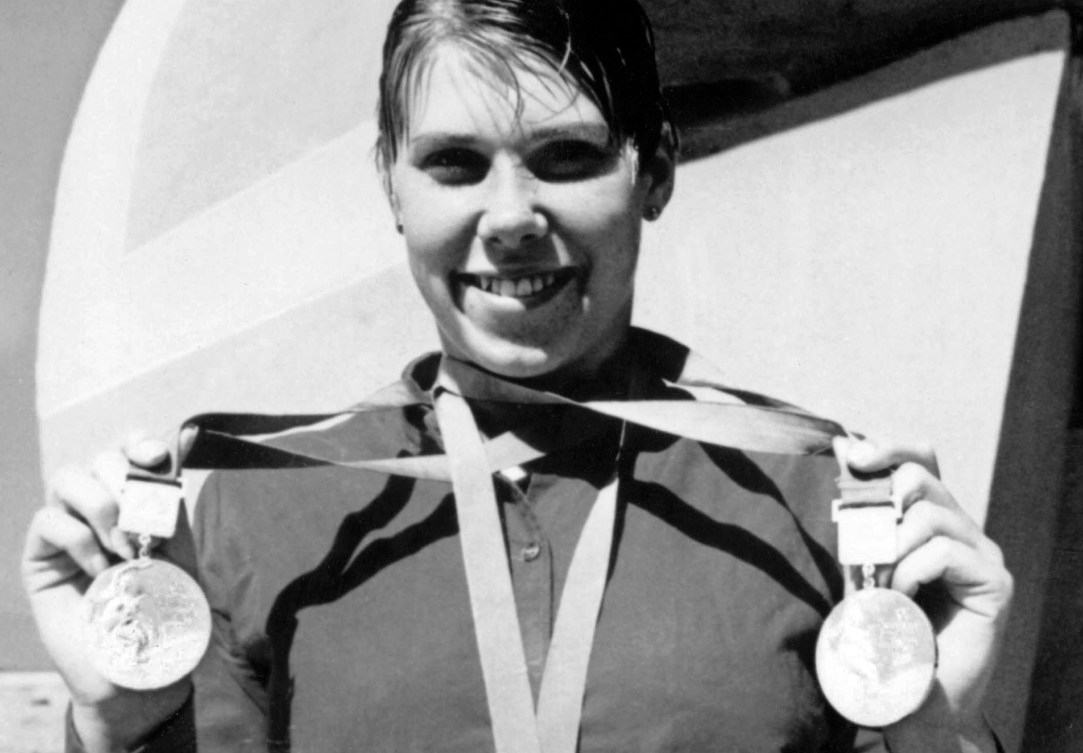
Robin Corsiglia became Canada’s youngest Olympic medallist (13 years, 341 days) when the women’s 4x100m medley relay won bronze in Montreal 1976. Eight of Canada’s 11 medals at those home Games were won in the pool, including a pair of backstroke bronzes by Nancy Garapick and Cheryl Gibson and Becky Smith sharing the podium in the 400m individual medley.
Canada won three swimming medals at London 2012. Ryan Cochrane followed up his Beijing 2008 1500m freestyle bronze with a silver in the same event, while Brent Hayden won bronze for Canada’s first ever Olympic medal in the 100m freestyle. Richard Weinberger added Canada’s first Olympic open water medal, winning bronze in the 10km marathon.
Canadian Medallists
| Games | Event | Athlete | Finish |
|---|---|---|---|
| 1912 Stockholm | Freestyle 1500m - Men | George Hodgson | Gold |
| 1912 Stockholm | Freestyle 400m - Men | George Hodgson | Gold |
| 1984 Los Angeles | Breaststroke 200m - Men | Victor Davis | Gold |
| 1984 Los Angeles | Breaststroke 200m - Women | Anne Ottenbrite | Gold |
| 1984 Los Angeles | Individual Medley 200m - Men | Alex Baumann | Gold |
| 1984 Los Angeles | Individual Medley 400m - Men | Alex Baumann | Gold |
| 1992 Barcelona | Backstroke 100m - Men | Mark Tewksbury | Gold |
| 2016 Rio | Freestyle 100m - Women | Penny Oleksiak | Gold |
| 2020 Tokyo | Butterfly 100m - Women | Margaret Mac Neil | Gold |
| 1920 Antwerp | Freestyle 1500m - Men | George Vernot | Silver |
| 1968 Mexico City | Backstroke 100m - Women | Elaine Tanner | Silver |
| 1968 Mexico City | Backstroke 200m - Women | Elaine Tanner | Silver |
| 1968 Mexico City | Freestyle 400m - Men | Ralph Hutton | Silver |
| 1972 Munich | Butterfly 100m - Men | Bruce Robertson | Silver |
| 1972 Munich | Individual Medley 400m - Women | Leslie Cliff | Silver |
| 1976 Montreal | Individual Medley 400m - Women | Cheryl Gibson | Silver |
| 1976 Montreal | Medley Relay 4x100m - Men | Clayton Evans, Gary MacDonald, Graham Smith, Stephen Pickell, Bruce Robertson | Silver |
| 1984 Los Angeles | Breaststroke 100m - Men | Victor Davis | Silver |
| 1984 Los Angeles | Breaststroke 100m - Women | Anne Ottenbrite | Silver |
| 1984 Los Angeles | Medley Relay 4x100m - Men | Sandy Goss, Mike West, Tom Ponting, Victor Davis | Silver |
| 1988 Seoul | Medley Relay 4x100m - Men | Sandy Goss, Mark Tewksbury, Tom Ponting, Victor Davis | Silver |
| 1996 Atlanta | Individual Medley 200m - Women | Marianne Limpert | Silver |
| 2012 London | Freestyle 1500m - Men | Ryan Cochrane | Silver |
| 2016 Rio | Butterfly 100m - Women | Penny Oleksiak | Silver |
| 2020 Tokyo | Freestyle Relay 4x100m - Women | Margaret Mac Neil, Penny Oleksiak, Kayla Sanchez, Rebecca Smith, Taylor Ruck | Silver |
| 2020 Tokyo | Backstroke 100m - Women | Kylie Masse | Silver |
| 2020 Tokyo | Backstroke 200m - Women | Kylie Masse | Silver |
| 2024 Paris | Freestyle 400m - Women | Summer McIntosh | Silver |
| 1920 Antwerp | Freestyle 400m - Men | George Vernot | Bronze |
| 1928 Amsterdam | Freestyle Relay 4x200m - Men | F. Munroe Bourne, Garnet Ault, James Thompson, Walter Spence | Bronze |
| 1968 Mexico City | Freestyle Relay 4x100m - Women | Angela Coughlin, Elaine Tanner, Marilyn Corson, Marion Lay | Bronze |
| 1972 Munich | Backstroke 200m - Women | Donna-Marie Gurr | Bronze |
| 1972 Munich | Medley Relay 4x100m - Men | Bruce Robertson, Erik Fish, Robert Kasting, William Mahony, William Kennedy | Bronze |
| 1976 Montreal | Backstroke 100m - Women | Nancy Garapick | Bronze |
| 1976 Montreal | Backstroke 200m - Women | Nancy Garapick | Bronze |
| 1976 Montreal | Freestyle 400m - Women | Shannon Smith | Bronze |
| 1976 Montreal | Individual Medley 400m - Women | Becky Smith | Bronze |
| 1976 Montreal | Freestyle Relay 4x100m - Women | Anne Jardin, Barbara Clark, Becky Smith, Gail Amundrud, Debbie Clarke | Bronze |
| 1976 Montreal | Medley Relay 4x100m - Women | Anne Jardin, Robin Corsiglia, Susan Sloan, Wendy Hogg, Debbie Clarke | Bronze |
| 1984 Los Angeles | Backstroke 100m - Men | Mike West | Bronze |
| 1984 Los Angeles | Backstroke 200m - Men | Cameron Henning | Bronze |
| 1984 Los Angeles | Medley Relay 4x100m - Women | Anne Ottenbrite, Michelle MacPherson, Pamela Rai, Reema Abdo | Bronze |
| 1988 Seoul | Medley Relay 4x100m - Women | Allison Higson, Andrea Nugent, Jane Kerr, Keltie Duggan, Lori Melien, Patricia Noall | Bronze |
| 1992 Barcelona | Medley Relay 4x100m - Men | Jon Cleveland, Marcel Gery, Mark Tewksbury, Stephen Clarke, Tom Ponting | Bronze |
| 1996 Atlanta | Individual Medley 200m - Men | Curtis Myden | Bronze |
| 1996 Atlanta | Individual Medley 400m - Men | Curtis Myden | Bronze |
| 2000 Sydney | Individual Medley 400m - Men | Curtis Myden | Bronze |
| 2008 Beijing | Freestyle 1500m - Men | Ryan Cochrane | Bronze |
| 2012 London | Freestyle 100m - Men | Brent Hayden | Bronze |
| 2012 London | Marathon 10km - Men | Richard Weinberger | Bronze |
| 2016 Rio | Backstroke 200m - Women | Hilary Caldwell | Bronze |
| 2016 Rio | Freestyle Relay 4x200m - Women | Penny Oleksiak, Emily Overholt, Taylor Ruck, Katerine Savard, Brittany MacLean, Kennedy Goss | Bronze |
| 2016 Rio | Backstroke 100m - Women | Kylie Masse | Bronze |
| 2016 Rio | Freestyle Relay 4x100m - Women | Penny Oleksiak, Chantal van Landeghem, Taylor Ruck, Sandrine Mainville, Michelle Williams | Bronze |
| 2020 Tokyo | Freestyle 200m - Women | Penny Oleksiak | Bronze |
| 2020 Tokyo | Medley Relay 4x100m - Women | Kylie Masse, Sydney Pickrem, Margaret Mac Neil, Penny Oleksiak, Taylor Ruck, Kayla Sanchez | Bronze |
| 2024 Paris | Individual Medley 400m - Women | Summer McIntosh | Gold |
| 2024 Paris | Butterfly 200m - Men | Ilya Kharun | Bronze |
| 2024 Paris | Butterfly 200m - Women | Summer McIntosh | Gold |
| 2024 Paris | Backstroke 200m - Women | Kylie Masse | Bronze |
| 2024 Paris | Butterfly 100m - Men | Josh Liendo | Silver |
| 2024 Paris | Butterfly 100m - Men | Ilya Kharun | Bronze |
| 2024 Paris | Individual Medley 200m - Medley | Summer McIntosh | Gold |
Teams
Paris 2024
- Alex Axon
- Apollo Hess
- Blake Tierney
- Brooklyn Douthwright
- Ella Jansen
- Emma Finlin
- Emma O’Croinin
- Finlay Knox
- Ilya Kharun
- Ingrid Wilm
- Javier Acevedo
- Jeremy Bagshaw
- Josh Liendo
- Julie Brousseau
- Kelsey Wog
- Kylie Masse
- Lorne Wigginton
- Margaret (Maggie) Mac Neil
- Mary-Sophie Harvey
- Patrick Hussey
- Penny Oleksiak
- Rebecca Smith
- Regan Rathwell
- Sophie Angus
- Summer McIntosh
- Sydney Pickrem
- Taylor Ruck
- Tristan Jankovics
- Yuri Kisil
Santiago 2023
- Alex Axon
- Bailey O’Regan
- Benjamin Cote
- Blake Tierney
- Brayden Taivassalo
- Brooklyn Douthwright
- Collyn Gagne
- Danielle Hanus
- Édouard Fullum-Huot
- Emma O’Croinin
- Finlay Knox
- Gabriel (Gabe) Mastromatteo
- Hugh McNeill
- James Dergousoff
- Javier Acevedo
- Jeremy Bagshaw
- Julie Brousseau
- Katerine Savard
- Katie Forrester
- Keir Ogilvie
- Kelsey Wog
- Kevin Zhang
- Laila Oravsky
- Maddy Gatrall
- Margaret (Maggie) Mac Neil
- Mary-Sophie Harvey
- Raben Dommann
- Rachel Nicol
- Sophie Angus
- Stephen Calkins
- Sydney Pickrem
- Timothé Barbeau
- Yu Tong Wu
Tokyo 2020
- Bailey Andison
- Brent Hayden
- Cole Pratt
- Finlay Knox
- Gabriel (Gabe) Mastromatteo
- Javier Acevedo
- Josh Liendo
- Katerine Savard
- Katrina Bellio
- Kayla Sanchez
- Kelsey Wog
- Kierra Smith
- Kylie Masse
- Margaret (Maggie) Mac Neil
- Markus Thormeyer
- Mary-Sophie Harvey
- Penny Oleksiak
- Rebecca Smith
- Ruslan Gaziev
- Summer McIntosh
- Sydney Pickrem
- Taylor Ruck
- Tessa Cieplucha
- Yuri Kisil
Rio 2016
- Ashton Baumann
- Audrey Lacroix
- Brittany MacLean
- Chantal Van Landeghem
- Dominique Bouchard
- Emily Overholt
- Erika Seltenreich-Hodgson
- Evan Van Moerkerke
- Hilary Caldwell
- Jason Block
- Javier Acevedo
- Katerine Savard
- Kennedy Goss
- Kierra Smith
- Kylie Masse
- Mack Darragh
- Markus Thormeyer
- Martha McCabe
- Michelle Williams
- Noemie Thomas
- Penny Oleksiak
- Rachel Nicol
- Richard Weinberger
- Ryan Cochrane
- Sandrine Mainville
- Santo Condorelli
- Stephanie Horner
- Sydney Pickrem
- Taylor Ruck
- Yuri Kisil
Toronto 2015
- Alec Page
- Alex Loginov
- Aly Ackman
- Audrey Lacroix
- Brittany MacLean
- Chantal Van Landeghem
- Coleman Allen
- Dominique Bouchard
- Emily Overholt
- Erika Seltenreich-Hodgson
- Evan Van Moerkerke
- Evan White
- Hilary Caldwell
- James Dergousoff
- Jeremy Bagshaw
- Karl Krug
- Katerine Savard
- Kennedy Goss
- Kier Maitland
- Kierra Smith
- Kylie Masse
- Luke Reilly
- Markus Thormeyer
- Martha McCabe
- Michelle Williams
- Noemie Thomas
- Rachel Nicol
- Richard Funk
- Russell Wood
- Ryan Cochrane
- Sandrine Mainville
- Santo Condorelli
- Stefan Milosevic
- Sydney Pickrem
- Tabitha Baumann
- Tera Van Beilen
- Yuri Kisil
- Zack Chetrat
London 2012
- Alec Page
- Alexandra Komarnycky
- Amanda Reason
- Andrew Ford
- Andrew Scott Dickens
- Audrey Lacroix
- Barbara Jardin
- Blake Worsley
- Brent Hayden
- Brittany MacLean
- Charles Francis
- Colin Russell
- David Sharpe
- Erica Morningstar
- Heather MacLean
- Hilary Caldwell
- Jillian Tyler
- Joseph Bartoch
- Julia Wilkinson
- Katerine Savard
- Martha McCabe
- Richard Hortness
- Richard Weinberger
- Ryan Cochrane
- Samantha Cheverton
- Savannah King
- Sinead Russell
- Stephanie Horner
- Tera Van Beilen
- Thomas Gossland
- Tobias Oriwol
- Victoria Poon
- Zsofia Balazs
Beijing 2008
- Alexandra Komarnycky
- Andrew Hurd
- Annamay (Pierse) Oldershaw
- Audrey Lacroix
- Brent Hayden
- Brian Johns
- Erica Morningstar
- Genevieve Saumur
- Jake Tapp
- Jillian Tyler
- Joel Greenshields
- Joseph Bartoch
- Julia Wilkinson
- Keith Beavers
- Lindsay Seemann
- Mathieu Bois
- Mike Brown
- Richard Hortness
- Ryan Cochrane
- Savannah King
- Stephanie Horner
- Tanya Hunks
- Tobias Oriwol
- Victoria Poon

